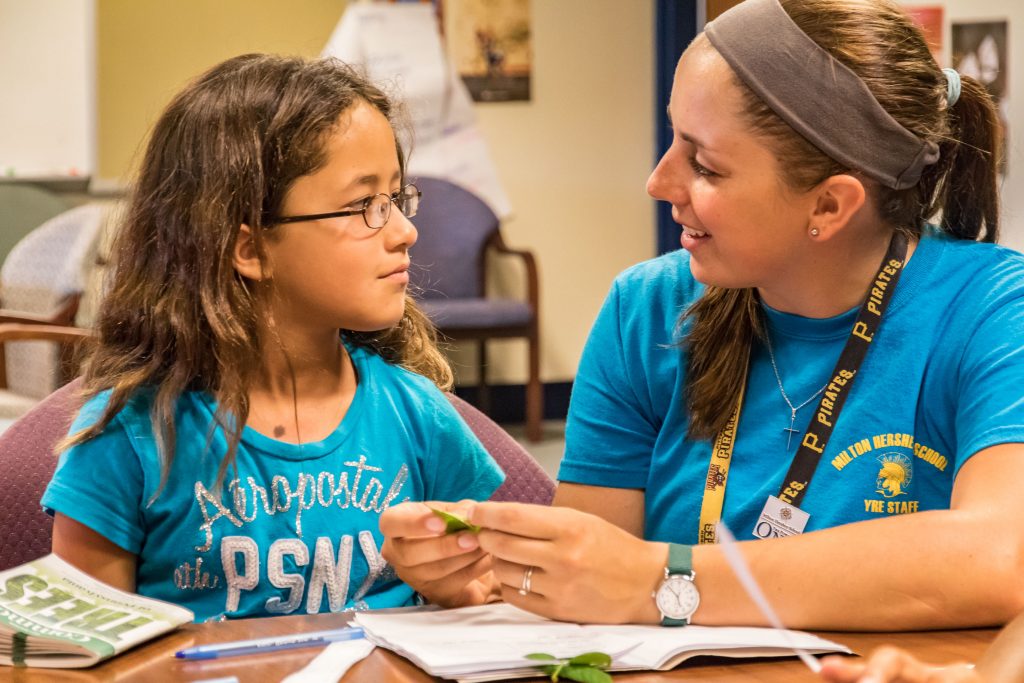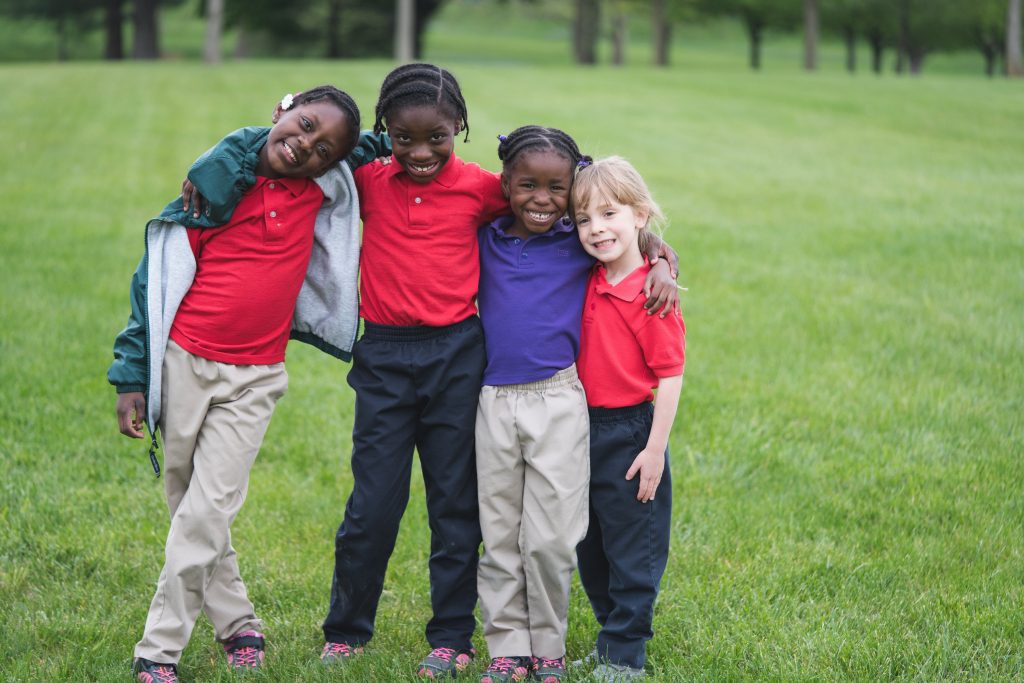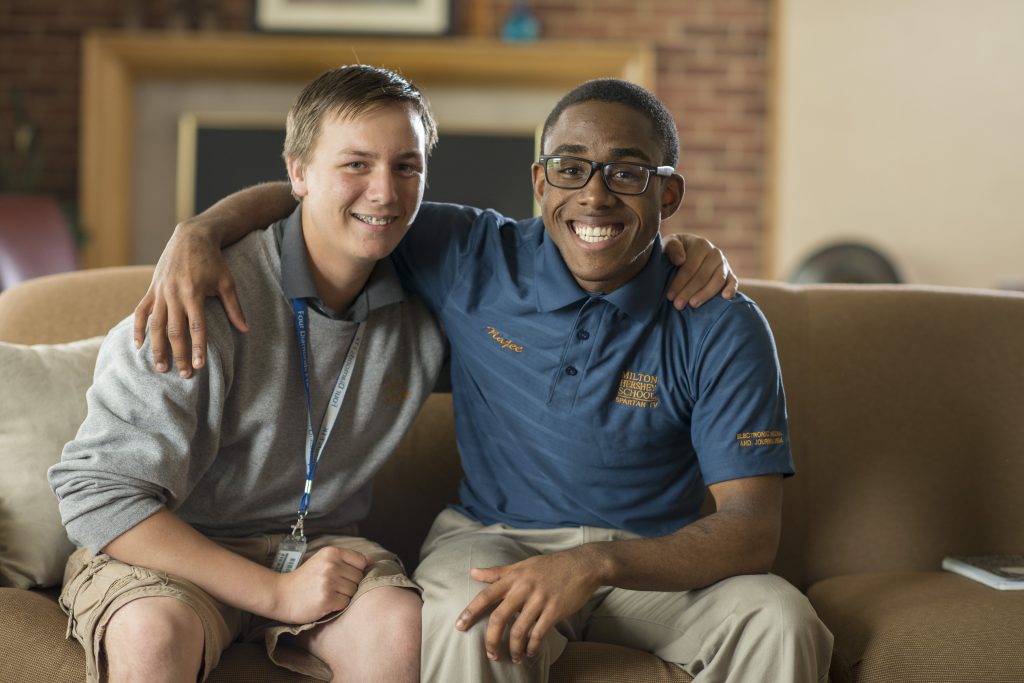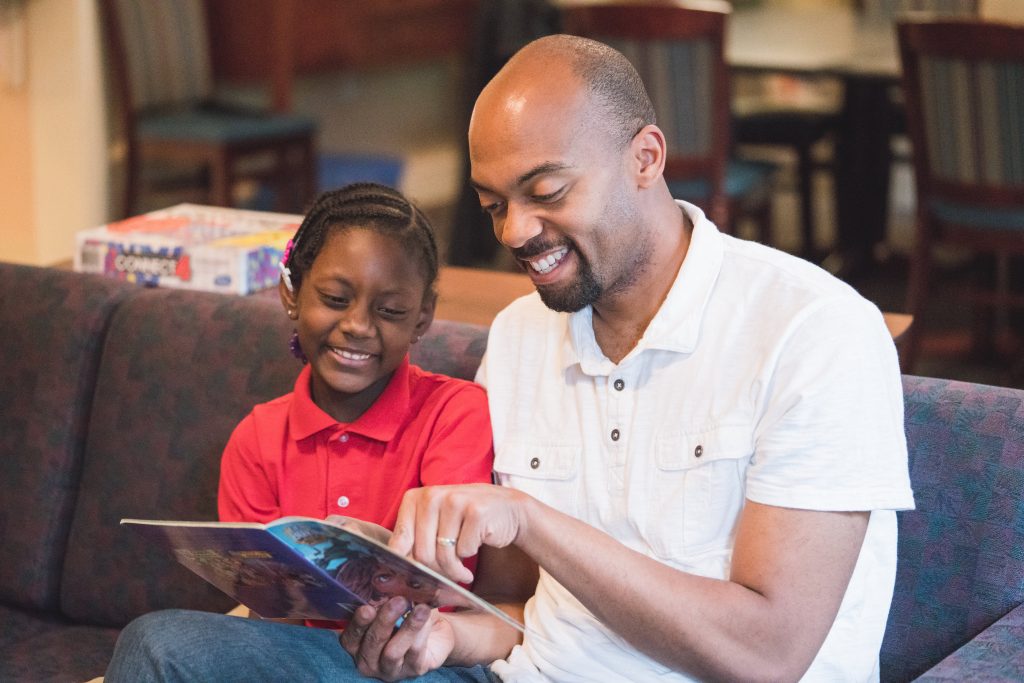What to Know About Enrolling and Transitioning Students to Milton Hershey School
With over 2,000 students have accepted enrollment at Milton Hershey School, more students than ever before have access to brighter futures through an exceptional education. And that number is expected to grow to continue growing.
New MHS students are excited about the opportunities available at MHS, but that doesn’t eliminate homesickness and the other very real emotions they may experience. When parents/sponsors and their children arrive for Enrollment Day, both parties have new realities to face.
To help the enrollment process go smoothly for families, the MHS Family Relations team offers resources and support.
“We’ve really made an effort over the years to make it a celebratory day because we recognize that enrollment is emotional,” said Jay Garvey, Family Relations and New Student Transitions Coordinator. “We try to make it a very positive, upbeat and welcoming environment.”
See how the Family Relations team works to ensure students have a comfortable transition to MHS and what to expect during the enrollment process.
Tools for Homesickness
New MHS students can range anywhere from four years old to 15 years old, and Enrollment Day is different for everyone. The one common thread is homesickness. Most students feel homesick at some point after they enroll, but they all express their emotions differently based on their age and background.
“Homesickness can be physically missing home and the environment, or it could be missing relationships and certain lifestyles,” said Garvey. “It can manifest itself differently with so many kids.”
The Family Relations team understands it can’t prevent homesickness, but employees do their best to prepare students and families during the admissions process. When they send families their enrollment packets, they include an informational homesickness DVD. The MHS community also works with students to find tools and strategies for managing homesickness.
“We’re trying to create a warm environment for kids to transition to. One of the keys is helping them realize why they’re here and what they can do while they’re here,” Garvey explained.
Transition Programs and Activities
Similar to the varying levels of homesickness, new students are excited about different opportunities at the school. For most kids, it’s a day they have been anticipating for a long time.
“A lot of younger students are excited about the activities, the school, and meeting new friends,” said Garvey. “Many of the older students are excited for a fresh start and getting out of negative environments.”
To build on students’ excitement and show them all MHS has to offer, each Division has transition programs in place to ensure they have a smooth adjustment to campus life. New elementary students participate in a co-pilot program where they meet with staff members who serve as mentors once a month throughout their entire first school year. Middle schoolers have new student meetings, and seniors enjoy organized lunches with other new students. The Student Government Association also leads exciting student activities to help new students build relationships on campus.
“As we work with new students and help them develop strategies to deal with transitions, those [strategies] are reinforced as they move through the process at MHS and after graduation,” Garvey said. “They’re lifelong skills they can use.”
Support for Parents/Sponsors
Enrollment Day is a major milestone for students and families, and by making the decision to send children to MHS, parents/sponsors have their own set of emotions to navigate. At the end of Enrollment Day, parents/sponsors have the opportunity to meet with the Family Relations team so they have a supportive place to ask questions, decompress, and learn ways they can support their child’s progress at MHS.
“Our role is to help [parents/sponsors] navigate Milton Hershey School and ultimately support their kids,” Garvey said. “Their support is instrumental to students’ success.”
Parents/sponsors can sign up for weekly email newsletters to stay connected to campus happenings. They also can access an online video library of readily accessible resources. The Family Relations team visits different communities throughout the year to host Spartan Family Network meetings, which gives parents/sponsors another place to share feedback, build connections with other parents/sponsors in the area, and hear updates from the school.
One of the best ways to support students is by attending Spartan Sponsor Academy – a new session hosted by Family Relations to equip families with the tools they need to support students while they’re at MHS and when they enter college, the military, or the world of work.
“Transitioning new students is the responsibility of the whole campus. It can’t be just the first week, but for as long as kids need it,” said Garvey. “It’s really important that the whole campus community embraces transitioning new students.”
To manage emotions before and after Enrollment Day, and best support MHS students, parents/sponsors are encouraged to:
- Accept that homesickness and missing your children are real, normal emotions. Make sure students understand this as well.
- Build connections with other parents/sponsors in your community, so you have a strong support system.
- Attend Spartan Sponsor Academy and other workshops offered by the school to learn how to support students while they’re at MHS and once they graduate.
- Set high expectations for yourself and students, so they know that failure isn’t an option. They will make you proud by meeting these expectations.
- Avoid saying “goodbye” but instead say “see you later.”
Jay Garvey is a Family Relations and New Student Transitions Coordinator. He has worked at MHS for 12 years.





